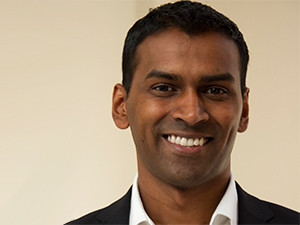
The digital economy, and the evolution of organisations positioned to benefit from it, can be summarised in five key trends.
Lee Naik, MD of Accenture Digital, outlined these trends at the ITWeb Digital Economy Summit 2015 at The Forum, Bryanston, this week.
Naik said successful organisations have adopted a two-fold strategy of both internal optimisation and external digitisation.
"Internally, digitalisation means using technology at key points to make processes as optimal as possible," he said. "Externally, we need to focus on the customer experience. Stop talking about brand, and start talking about customer experience."
That shift is not futurism, but one already well under way, he said. "Last year, we saw a drastic shift among large organisations globally and locally, to start to take on this challenge, to start to evolve."
"Digital isn't a product. It's who we are," Naik said. "We think of it as the 'We Economy', rather than just a digital economy." The expectations of every consumer, employee and manager have been changed by the emergence of digital services and products, to the point that it should no longer be seen as a separate strategy but instead fundamental to the successful future of a brand, he said. "You need to get out of the cycle of chasing price."
As a whole, Naik describes a new market model of "the we economy", in which partners, suppliers and customers collaborate in a more open, close-knit fashion to improve products, profitability, and experience. That 'we economy' is marked by five key trends, he said.
Internet of me
The first of Naik's five trends is the "Internet of me", in contrast to the Internet of things so commonly talked about. Naik emphasised the rise of deep personalisation, at scale, to the point that every customer receives a uniquely tailored experience with a maximum of value and a minimum of friction or frustration.
Digital isn't a product. It's who we are.
"Many companies I work with in South Africa are experimenting with wearable technology to find new ways to deliver personalised services and obtain better data about their users.
"Omni-channel means it can't just be about your experience with a mobile device, or Web site, or contact centre - it's absolutely everywhere, and that's a big challenge."
Outcome economy
The second trend is one in which partners work to achieve goals, rather than just supplying components. "Your clients don't care how you do things, they care what you do. They care about the promises you make. You're going to see a lot more risk on the table, where a vendor will commit to a result - an outcome - where their very payment is dependent upon the desired end result being achieved. We'll become trusted access partners to our clients, and how we deliver it is actually secondary."
Platform revolution
Collaboration within smoothly meshing ecosystems forms the core of Naik's third trend - a platform revolution. "I see many large organisations struggling to innovate on the inside. But what if they could collaborate with entrepreneurs on the outside, tap into open innovation? Build together and break down walls between you and the outside, and between your departments.
"That's what platforms give us - they are not about technology; cloud or anything else. When the world was busy doing the ice bucket challenge to raise ALS [Amyotrophic lateral sclerosis, also known as motor neuron disease or Lou Gehrig's Disease] awareness, Philips partnered with Google to create a device that would help ALS sufferers. They worked with Salesforce.com to build a platform that connects developers with doctors, nurses, and patients to improve healthcare services.
"John Deere has built a platform that connects farmers, so they can share agricultural data. Platforms enable us to solve for an entire economy, or an entire sector, rather than just for our own organisation. And of course we benefit commercially at the same time."
"Stop trying to do everything by yourself. Tap into entrepreneurs en masse - enable innovation as a service, via an enabling platform," he said.
Intelligent enterprise
Enterprises need to embrace intelligence in a far deeper way than traditional analytics, Naik said. "Back in 2013, I did some research in South Africa and found that more than 80% of organisations had invested in fancy analytics of some form. Less than 12% saw value from it. We've been asking the wrong question all along. Try to figure out the two or three questions that are key to your survival, than process the whole mass of data in one go.
"We've moved ahead from enterprise dashboards. We're looking at prescriptive analytics now - insight that thinks futuristically. Take advantage of machine learning, which constantly improves its algorithms. Sixty percent of Netflix's revenue is from recommendations - they spend a lot of money to understand who you are and what you might want to watch." If you aren't building that capability, you're leaving a lot of revenue for competitors, he said.
Workforce reimagined
The drive to improve and simplify customer experience, coupled with intelligence and automation, drives Naik's last trend - evolution within the workforce, he said: "Ten years ago, SARS had 17 pages you had to fill in to do your tax return. Now it's two pages, pre-populated, that you can fill in on a mobile device. Ten years ago, there were hundreds of people working in the assessment section in SARS. Now, the only people working there are those handling exceptions.
"Challenge the way you work. Work more closely with technology to dramatically improve your organisation. This is not a threat: it's a reality. It empowers how we work, so ask yourself: how are you empowering your users to become more aware of how to do their jobs better?"
Share